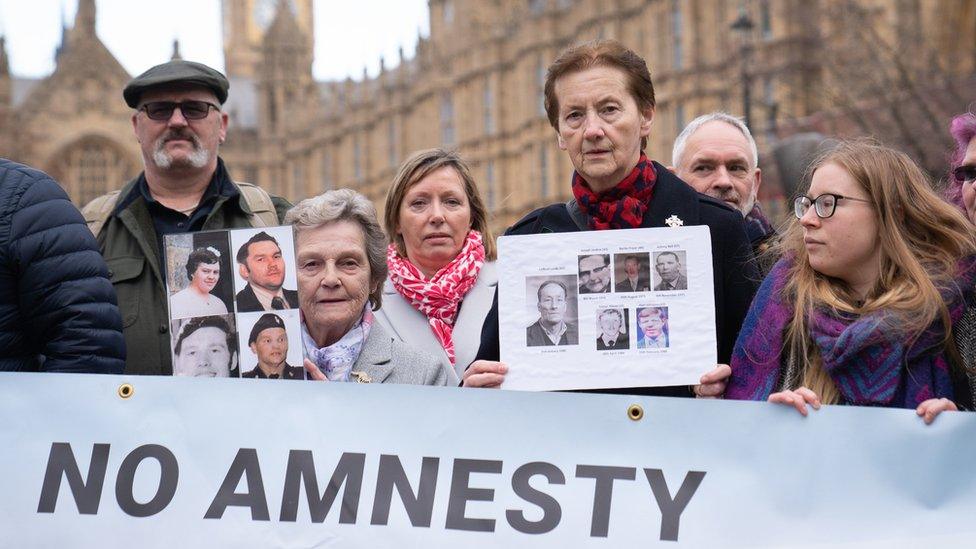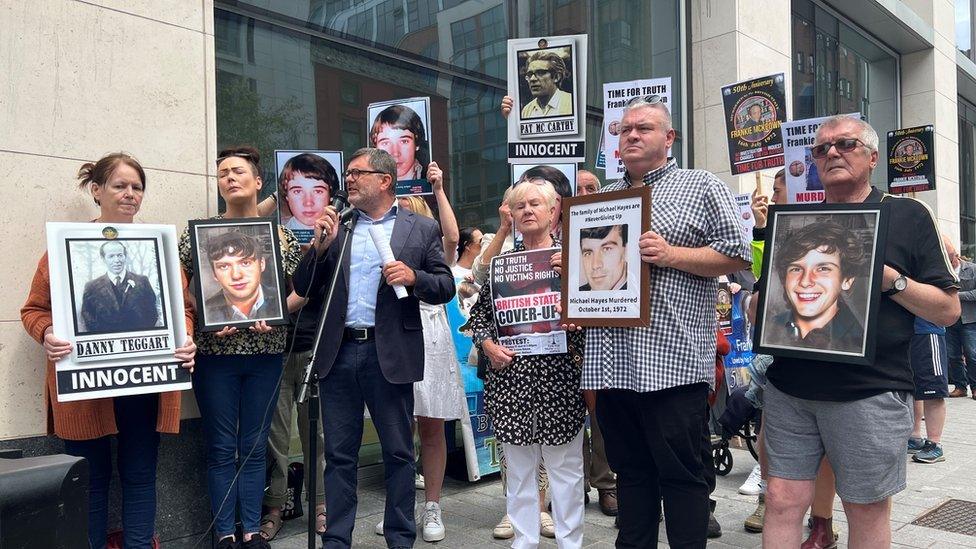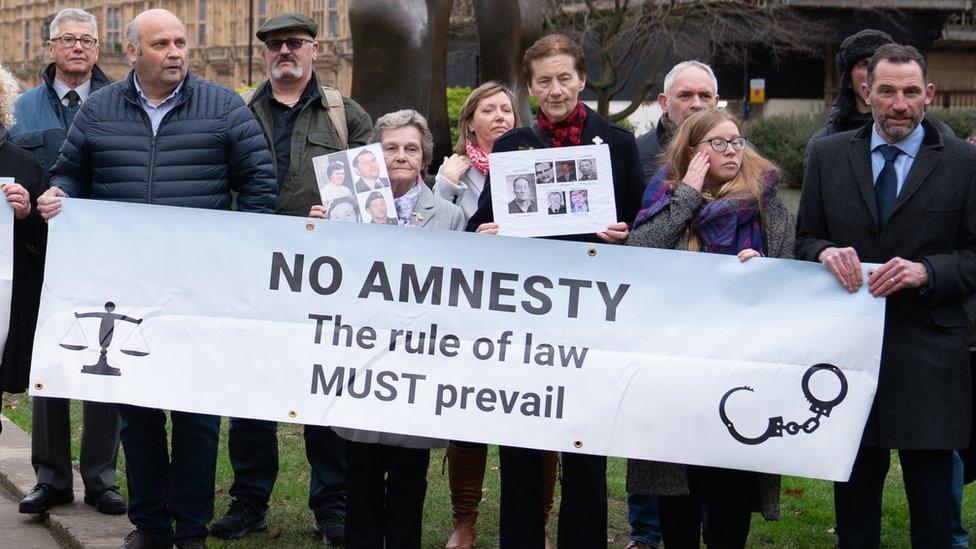Troubles legacy bill: Gerry Adams to be denied compensation
- Published

Gerry Adams is seeking damages after the Supreme Court quashed two historical convictions
Gerry Adams and others who were interned without trial in the 1970s will be unable to obtain compensation.
The decision was announced in the House of Lords on Tuesday.
Peers backed the move, which was proposed as an amendment to the government's legacy bill.
It will prohibit civil proceedings and payment of compensation for miscarriages of justice based on custody orders made by junior ministers.
Mr Adams, the former Sinn Féin leader, is currently pursuing a damages claim.
It follows a Supreme Court ruling, in 2020, quashing his two historical convictions for attempted escapes.
He won the case after the UK's highest court ruled his detention had been unlawful, as the custody order was invalid for not having been authorised by the Northern Ireland secretary at the time, William Whitelaw.
It had been signed off by a more junior minister.
The ruling paved the way for similar claims being lodged by up to 400 others.
'Draconian step'
Lord Caine, the Parliamentary under-secretary of state at the Northern Ireland Office, said it had "always been the government's understanding" that custody orders made by ministers were "perfectly valid".
"It was not unlawful simply because it had been made by a junior minister rather than the secretary of state, that was always the understanding of successive governments," he told peers.
He said the amendment he had drafted would have the effect of preventing any bids for compensation in such circumstances, and that he believed there was "little or no chance" of some claims being finished before the legislation comes into force.
KRW Law, which has been instructed in more than 50 of those cases, described the government's plan as a "draconian and retrograde step".
Solicitor Gary Duff said it was a "blatant attempt to ignore the clear judicial authority of the UK Supreme Court judgment in the interests of a wider political expediency".
"It is a shameful day for justice when this is allowed to happen because it a portent of what lies ahead for conflict-related victims not just those from one constituency," he added.
The government has said it intends the bill to finish all stages in Parliament before summer recess starts.
But it suffered a significant defeat last week, when the Lords voted to prevent immunity from prosecution being offered to those who cooperate with Troubles investigations.

People whose loved ones were killed in the Troubles have protested the bill
MPs had previously voted to retain the measure and it is likely they will vote to reinstate the clause when the bill returns to the House of Commons for its final stage.
The legislation will establish a new body, the Independent Commission for Reconciliation and Information Recovery (ICRIR), which would take over legacy cases.
'Can't get everything you want'
The bill is opposed by all Northern Ireland political parties, as well as groups representing bereaved families and victims of the Troubles.
But the Malone House Group, made up of lawyers, academics and a former Belfast councillor, welcomed the bill nearing completion.
In a statement, it said: "You can't get everything you want in politics but the legacy bill and ICRIR are now the way forward.
"We hope that this will be recognised in the Committee of Ministers at Strasbourg and that Dublin does not try to sabotage the new arrangements with an inter-state case against the UK at the European Court of Human Rights, as threatened by Taoiseach [Irish Prime Minister] Leo Varadkar."
The Irish government has frequently raised its concerns about the legislation and has not ruled out the possibility of legal action over it, if it is implemented in UK law.
Related topics
- Published28 April 2023

- Published26 June 2023

- Published21 June 2023

- Published8 June 2023
